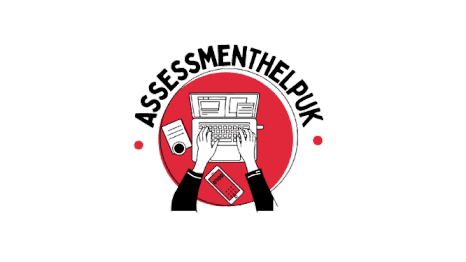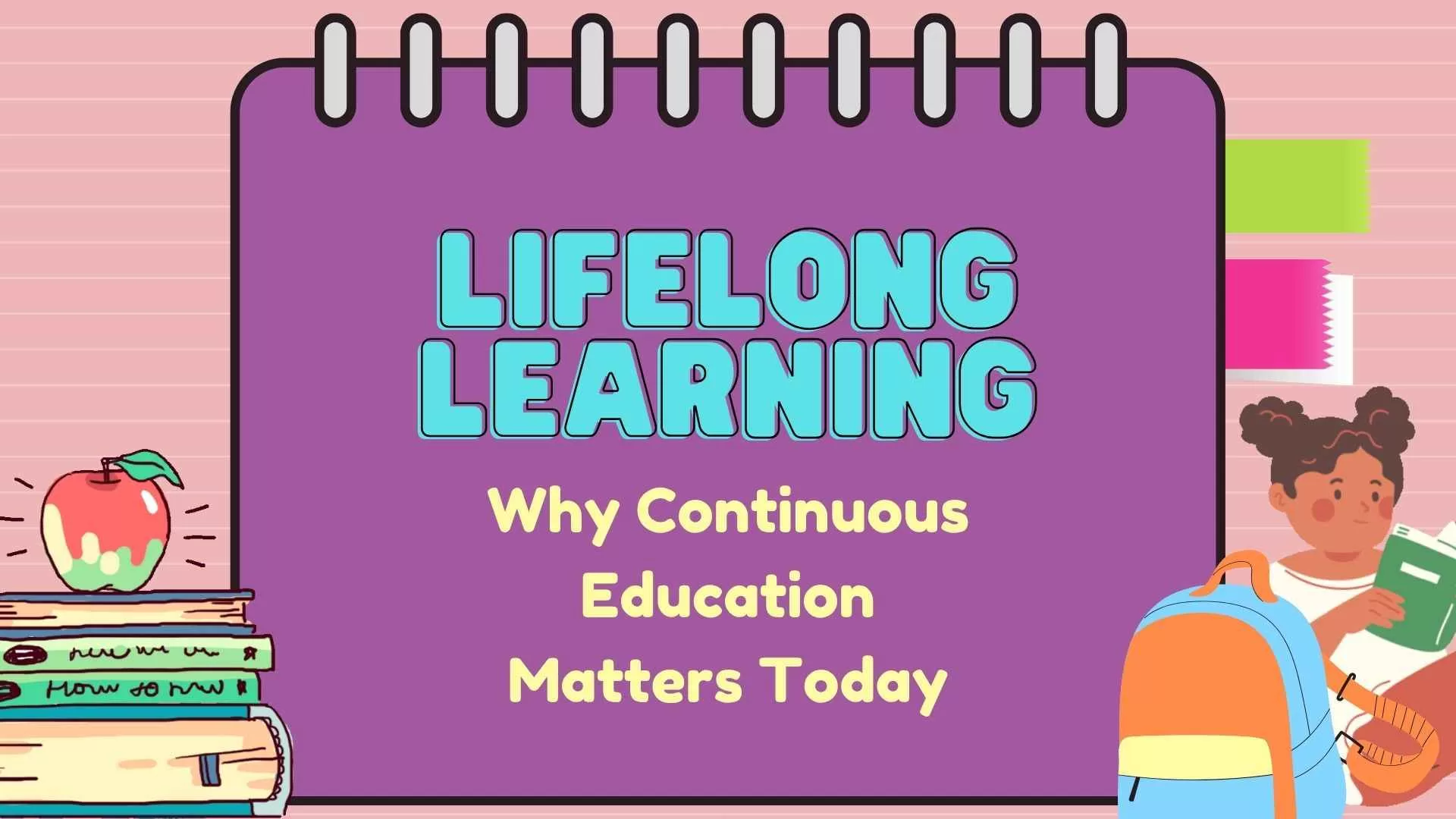A strong rebellious revolution can be seen happening, not in the boardrooms or classrooms, but in the way we think about achieving goals. The old practices of study, work, and retirement are no longer valid, as they reinvent themselves every few years. A marketing guru today might wake up just to find a new algorithm rewriting their strategy, or an architect learning sustainable materials that didn’t exist when they qualified. This pace has made one message clear that’s impossible to ignore: Can’t end once we leave school. In modern times, being constantly updated is one thing; lifelong learning isn’t just a choice, it’s the foundation of staying relevant, adaptable, and fulfilled.
The New Age of Knowledge: Why Learning No Longer Ends with Graduation
In the past there was a period of time when education was straightforward. I mean, you went to school, college, university, and got a job. Frankly the world is just moving far too fast than that single linear model will allow. In the 21st century, the half-life of knowledge is decreasing and decreasing at an exponential rate. People who have a degree were once educated for their whole lives. Today they engage with socio-technologies, systems, and ideas that didn’t exist just a decade ago.
There are examples to include here, for instance, the proliferation of artificial intelligence, digital marketing, and sustainability practices. Such fields are now reshaping industries at a faster rate than traditional education systems can update their syllabi. This shift has made the process of lifelong learning not a luxury but a necessity. It’s a connecting bridge between staying in the know and becoming completely redundant. The modern-day learner isn’t defined by any age or occupation; they’re defined by curiosity and adaptability. Doesn’t matter if it’s a mid-career engineer learning something new, or a nurse who’s taking online certifications to stay abreast of healthcare innovations, the pattern is crystal clear: Continuous and flowy learning is becoming a form of survival.
To put that in perspective, lifelong learning today is more than just acquiring skills; it embodies a clean mindset, one that values evolution, agility, and the hunger to remain informed in an unpredictable world.
The Shift in How We Define Education
Modern problems require modern solutions. Education has moved beyond institutional walls. No longer is it bound to degrees and diplomas; it’s incorporated into daily work, online platforms, learning, and even failures! Learning is now much more flexible, via podcasts, webinars, micro-courses, or self-directed experimentation. This redefinition indicates that education is not a destination; rather, education is something we nurture.
For example, instead of needing to, technology workers now utilize platforms like Coursera or LinkedIn Learning because they want to stay relevant. If we look at the organization, they are catching on to offering learning stipends, internal academies, and mentorship programs that foster more personal development alongside performance. In perspective, the modern economy reaps some amazing rewards for the learner. A time where innovation never stops, neither can we. The first bold move is to understand that lifelong learning is recognizing this truth: Education has evolved from a phase to a philosophy.
The Professional Imperative: Why Lifelong Learning Defines Career Longevity
Navigating a Career Landscape in Flux
Professional life, as we see it today, is no longer linear. Domains that once offered a predictable progression now operate in an environment of constant reinvention. Digitalization, automation, and shifting global priorities have removed the boundaries between traditional career paths. Meaning that success is less completely dependent on what you know and more on how quickly you can adapt.
An employee who adapts to new tools, learning systems, or even embraces new ideologies stays completely valuable even when the market changes. The modern career doesn’t benefit complacency; instead, it benefits agility and lifelong learning that provides exactly that edge.
Upskilling and Reskilling: The New Career Insurance
Upskilling and reskilling are two very different datasets of professional protection. A marketing executive mastering data analytics, or a construction manager learning digital modelling software, shows readiness for the next evolution in their field.
Lifelong Learning as a Leadership Trait
The modern leader isn’t defined by status, but by how you adapt to it. Continuous learning builds an intellectual humility, the understanding that knowledge is never complete. Leaders who invest in personal development courses, mentorship programmes, or even industry certifications are far better equipped to guide their teams through uncertainty.
Richard Branson once said, “The day you stop learning is the day you stop leading.” It wasn’t a principle echoed across industries, from tech founders who are studying behavioural economics to healthcare administrators learning digital patient systems. The hunger to learn sustains leadership credibility.
How Organizations Are Encouraging Continuous Development
Forward-thinking companies are embedding lifelong learning into their culture. Google’s “20% time” model, which allows employees to spend a proportion of their workweek on self-directed projects, has led to some of its most innovative breakthroughs. Meanwhile, UK-based companies such as PwC and HSBC have initiated “digital academies” to equip staff with future-ready skills.
Such initiatives highlight a simple truth: companies that invest in learning attract talent that wants to grow in future. In return, they build workforces that aren’t skilled for today, but adaptable for tomorrow.
The Personal Transformation, The Psychological Value of Learning
While the professional benefits score the best, the most profound effects of lifelong learning are internal. Learning stimulates curiosity, builds mental flexibility, and creates a sense of personal progress, all credited to wellbeing. When individuals challenge themselves to acquire new knowledge, they get a renewed sense of purpose. Psychologists call this cognitive vitality, the ability of the brain to stay in action and adapt. So if it’s mastering a language at 50 or taking an online photography course, continued learning helps people feel capable, stay relevant, and in control of their evolution. This mindset shifts learning from an obligation into a lifelong source of empowerment.
Building Confidence Through Competence
Confidence doesn’t come up with theory, it’s made through small and consistent wins. Each time a person learns something new, either from coding or from a simple webpage to understand financial literacy, they reinforce a strong narrative of capability. That narrative reshapes identity.
Real-Life Examples: Growth Through Curiosity
- Example 1 – The Mid-Career Learner: Emma, a 42-year-old HR professional from Manchester, enrolled in a part-time MSc in Organisational Psychology. The experience not only refreshed her career but reignited her sense of direction after a decade in the same role.
- Example 2 – The Retiree Reborn: After retirement, David began online courses in digital art. Within a year, he was exhibiting in local galleries, proving that passion and purpose don’t retire when people do.
- Example 3 – The Entrepreneurial Pivot: Farah, a small business owner, used free government-funded online training to master e-commerce during the pandemic. The result: her business tripled in revenue by adapting faster than competitors.
These aren’t some isolated stories, they show the ripple effect of the curiosity that is sustained by the learning.
The Measurable Impact of Lifelong Learning
Below is a comparative overview that is based on findings from adult education and workforce studies in the UK:
| Aspect | Non-Learners | Active Lifelong Learners |
| Self-Confidence Levels | Moderate to low | Significantly higher |
| Mental Wellbeing | Often fluctuates with external events | More stable and optimistic |
| Adaptability to Change | Resistance to new technologies/processes | Quick adaptation and creative problem-solving |
| Career Satisfaction | Declines with routine | Grows with exposure to new knowledge |
| Community Involvement | Limited engagement | Active participation and mentoring roles |
These findings underline how learning doesn’t just prepare individuals for change, it transforms them into agents of it.
How Lifelong Learning Shapes Communities and Nations
A Smarter Workforce for a Stronger Economy
What do you think is the main reason behind some of the most famous and successful economies? Economies thrive when their people do. Nations that prioritise lifelong learning not just only make some of the knowledgeable citizens, they cultivate adaptable workforces capable of driving innovation. In the UK, productivity and economic competitiveness are massively linked to how well employees can acquire and apply new skills. As industries change, a culture of learning becomes an economic necessity rather than a social ideal.
Booming economies like Finland and Singapore are the prime examples, both have incorporated lifelong education into their national frameworks, resulting in highly skilled, future-ready populations.
The message is clear: an educated society isn’t just better informed; it’s more resilient in the face of disruption.
The Social Ripple Effect of Educated Citizens
The perks of continuous education goes far above individual career growth. When people engage in lifelong learning, communities become more active and innovative. Adults who learn new skills often share that enthusiasm with children and colleagues, creating a multiplying effect of curiosity and a mannered engagement.
Reducing Inequality Through Accessible Learning
Well, it won’t be wrong to say that lifelong learning also acts as a leveller. By offering an open portal to education through digital platforms, vocational training, and workplace schemes, individuals from multiple backgrounds can bridge up gaps in the opportunity. Initiatives such as the UK’s National Skills Fund have helped countless adults to retrain and upskill regardless of their income, or qualifications. Remember, the key here is having more access, the more accessible it becomes, the more easy to equate it is. Education gives agency, allowing people to change professions, improve livelihoods, and contribute meaningfully to a dynamic economy.
The Role of Governments and Institutions in Sustaining Learning Culture
For lifelong learning to flourish at a massive scale, policy and infrastructure should be solid enough to support it. Governments that take initiative to invest in adult education funding, tax incentives for training, and public-private deals make an ecosystem where a movement becomes a secondary nature. Corporate collaboration is equally vital. When a business partner with educational institutions, they make sure that the university guidelines meet the real-world criteria. The result is a sustainable loop, a system where people, companies, and governments evolve together through shared knowledge and adaptability.A society that learns continuously doesn’t just survive disruption; it shapes the future on its own terms.
The Future of Lifelong Learning: Adapting to an Ever-Changing World
The future of learning won’t be restricted by time or geographical reasons. Artificial intelligence, VR, and adaptive online systems are already shaping how knowledge is delivered and consumed. Learning platforms are becoming more personalised, aligning content to an individual’s pace, interests, and goals.
But the real potential is in the accessibility. A student who is in rural Wales can easily access the same set of knowledge as someone in central London. This democratisation of learning means that growth isn’t determined by circumstance, but by initiative. And as technology grows, lifelong learning becomes not just easier, but an instinct.
The Human Element: Curiosity, Purpose, and Connection
Despite having technological advancement, the heart of a lifelong education remains at the bottom of human connection. It’s driven and engaged by curiosity, filled by purpose, and sustained through a high connection. People learn best when the process meets with meaning, when new skills help them to contribute, express, and connect. Communities of practice, mentorship circles, and learning groups are reintroduced to the social nature of education.
A Future Defined by Learners, Not Qualifications
In the years to come, it will be the individual who is always learning who will be in control. Employers will have more respect for your adaptability than your degree, and innovators will emerge from our communities, not just the education system. The question will not be what degree do you hold? But what have you learnt recently? Lifelong Learning is not a fad; it is the signature behavior of the new era. It allows individuals to maintain their growth, strengthens communities, and guarantees that no one and no knowledge stays stagnant.
Other informative blogs:
Assessing Bias in AI-Driven Admissions Systems
FAQs
What Destinations Do You Offer?
Lifelong learning is the ongoing process of gaining knowledge and skills throughout life and outside of formal education.
Why is lifelong learning essential in today’s workplace?
Is lifelong learning for professionals only?
Not at all, lifelong learning benefits everyone from students and retirees to entrepreneurs and community volunteers.



